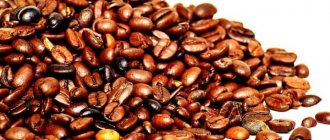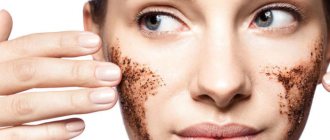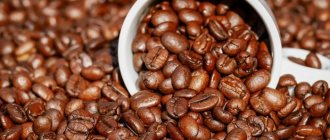When talking about their addiction to coffee, drink lovers call themselves coffee lovers, and sometimes jokingly even coffee addicts.
But is there really such a dependence? Doctors and scientists claim that such a problem exists, and can even be comparable in strength to drug addiction, and not taking it seriously can lead to negative health consequences. Moreover, getting rid of the painful habit of constantly drinking coffee is just as difficult as getting rid of any other, including sugar addiction.
Scientific research indicates that caffeine produces behavioral and physiological effects identical to those observed with other drugs.
A survey of 500 addiction specialists in the United States showed that the majority of them confirm the existence of withdrawal syndrome (colloquially “withdrawal”) and coffee addiction, and also consider these symptoms to be clinically significant.
Therefore, it is necessary to fight caffeineism, as American doctors called this disease, because it really exists and tends to progress.
Is it possible to become addicted to coffee?
Coffee beans contain many different substances: antioxidants, vitamins, phenolic compounds, aromatic substances. There is the most caffeine: from 0.6 to 2.7% of the total composition. And most of the myths are associated with the influence of caffeine.
Caffeine is not only found in coffee. There is enough of it in black and green tea, cocoa, mate, and this substance is also used in soft and energy drinks, medications and active supplements.
Caffeine can actually become addictive, especially on a physical level. It stimulates the nervous system, increases cardiac activity, dilates blood vessels and generally affects the body in much the same way as adrenaline. Acting in this way, caffeine relieves headaches, stimulates breathing and cardiac activity during colds, increases mental and physical performance, and eliminates drowsiness. The body likes this effect, so it can become addictive.
What type are you?
Getting rid of it is not so difficult: just stop consuming caffeine, and in a few days, maximum weeks, your body will get used to doing without it. At the same time, such an addiction cannot be called an addiction: psychological dependence on caffeine, like tobacco or drugs, can only be obtained if you consume it in huge quantities. To do this, you need to consume caffeine in its pure form, brew the drink very strongly or drink it in liters. For example, this is what they do in prisons with black tea: they brew “chifir”. Chifir is a psychostimulant that causes addiction: it not only contains a lot of caffeine, but also a high concentration of harmful alkaloids. In ordinary life we do not drink such drinks.
Measures to combat coffee mania
To overcome caffeine addiction, you will have to show considerable willpower: the body will begin to demand the usual dose, reacting to the restrictions with a deterioration in well-being and a depressed mood. The “perestroika” lasts about 4 weeks and can be relatively painless if the following approach is followed:
- In the first week, the frequency of “coffee libations” is reduced to once a day. In this case, the portion of coffee powder is cut exactly in half, that is, the drink becomes much less rich. Cocoa, leaf herbal and green tea are considered as replacements (bags are not suitable!). The latter, by the way, is also saturated with caffeine, but does not excite the nervous system so much.
- For the second week, all the same rules remain, only now the usual coffee portion is reduced by another third. The taste of the drink is, to put it mildly, so-so, but for the body it is better than nothing. It is advisable to spend the weekend without coffee gatherings at all, choosing strong green tea as a favorite. In case of a headache (a completely natural manifestation of withdrawal syndrome), it is permissible to take a cup of highly diluted coffee, but the next day will have to be spent exclusively on tea.
- By the third week, a clear realization should come: it’s quite possible to do without coffee. For the perseverance shown over the weekend (if there was no indulgence under the pretext of getting rid of a headache), on Monday you can reward yourself with a cup of your favorite coffee. Tuesday – again on green tea; on Wednesday, Friday and Sunday mornings you can and should start with coffee. This regime is intended to prove that even in the absence of coffee drinking, the body does not lose its performance.
- The fourth week should put the finishing touches on your relationship with coffee. You need to choose any one day when you can fully enjoy espresso, cappuccino or latte - drink slowly, savoring and prolonging the pleasure. When the cup is empty, you should say goodbye to the heavy dependence on the once irreplaceable drink forever. If you wish, you can drink decaffeinated coffee, but not regular coffee.
How does coffee affect the body?
It cannot be said that we know everything about the effects of coffee: its individual substances have not yet been sufficiently studied. But recent research has rehabilitated the drink: coffee can also have a positive effect.
In July 2021, the results of a large-scale study were published: data was collected on half a million people from 10 European countries over 16.4 years. Scientists tested how drinking coffee affects the development of diseases of the cardiovascular system, liver and digestive organs, cancer in women and suicide in men. The results are surprising: Those who drank 3 or more cups of coffee per day had a lower risk of death from all these causes than non-coffee drinkers. And this relationship did not change depending on the country.
In a 2014 study, scientists found that drinking coffee in moderation prevents the risk of developing Alzheimer's disease. Several other studies have shown that caffeine reduces the risk of developing Parkinson's disease and type II diabetes.
It is worth remembering that caffeine promotes leaching of calcium from bones and can negatively affect the fetus. During pregnancy, it is advised not to drink coffee at all, and for teenagers and the elderly not to drink more than a cup a day, preferably with milk.
The symptoms of coffee addiction are as follows:
- Coffee is consumed much more often than usual (the norm is the aforementioned 2 cups per day, although, again, everything is individual), in large quantities and for a long time. Simply put, taking it in abundance becomes a habit;
- concentration is impaired, it becomes difficult to concentrate on a task, even the most basic, difficulties arise with setting priorities;
- apathy and chronic fatigue are felt;
- causeless anxiety may arise, and behavior against this background becomes hyperactive;
- tremors in the limbs and photophobia are manifested. Thoughts are confused, speech is pronounced faster than usual, may be inconsistent, abrupt;
- depression appears and develops, which, as a rule, is accompanied by stereotypy - a pathological craving for repeated repetition of “honed”, habitual actions (such as lining up pencils in a clearly defined sequence or frequently shaking off non-existent crumbs);
- With all the problems listed above, it is impossible to part with caffeine - the drink, which provokes physical and mental deterioration, is consumed again and again. The process cannot be controlled; drinking coffee no longer brings the former pleasure, does not supply the required energy, but becomes only a means of satisfying the need.
Why is caffeine addiction dangerous?
A natural drink in moderate quantities (no more than 2 cups) is beneficial. But if a person is truly addicted to coffee, then this has a negative effect on the body. If you drink an instant drink, there will be no benefit from it at all. Coffee addicts rarely admit their addiction. If we consider all the pros and cons of coffee, we can conclude that a person who has no contraindications can drink no more than one cup of the natural drink per day.
Doses over 500 mg (about 5 cups) cause intoxication. Restlessness and irritability may appear, sometimes tachycardia and arrhythmia occur, and increased diuresis. Intoxication provokes stomach upset. In severe cases, tremors of the limbs occur and consciousness becomes confused.
When intoxication is repeated daily, the body adapts and over time, caffeine does not cause a feeling of vigor, but there is a feeling of depression, loss of strength, and headaches may occur. In severe cases of addiction, depression develops. Caffeine in large doses provokes the formation of a special type of blood protein in the liver. It is directly related to free testosterone and is able to destroy its molecules. This negatively affects male potency.
Coffee is a drug that causes physical dependence. It is not dangerous if you do not abuse it. With regular use, the consequences for the body can be sad. When you suspect addiction, you need to think about how to stop drinking coffee.
Symptoms and signs
People do not always adequately assess their condition. And not all signs and symptoms of coffee addiction are noticed at all: they are more often considered to be a consequence of completely different problems. However, they are worth paying attention to.
- Sleep disorders. This could be insomnia, a sudden, causeless interruption of night sleep. Drowsiness accompanied by headaches can also be a consequence of drinking too much coffee.
- Signs of withdrawal. If a caffeine addict does not receive his usual drink within 12-24 hours, a migraine may begin and muscle pain may appear.
- Problems with the gastrointestinal tract. Many people think that without coffee, indigestion begins. Sometimes nausea occurs. Coffee actually helps digest food by activating the digestive system. But its absence should not have an effect in this way.
- Irritability and depression. Such symptoms of “withdrawal” can occur when abruptly stopping the “next dose” of caffeine.
How is coffee different from caffeine?
We know that coffee contains many active substances. One of them is caffeine. It can be considered a medicinal substance. Caffeine, for example, is included in Citramon tablets. Like any medicinal substance, caffeine can be beneficial or harmful. The concepts of coffee and caffeine should not be confused. Caffeine has substances similar to it in chemical structure. These are, for example, theophylline (found in tea leaves), theobromine (found in cocoa beans). Cocoa, by the way, contains a little caffeine itself. That is why it is also found in chocolate. True, its doses there are simply meager. Caffeine is a powerful stimulant. It can affect the functioning of the central nervous system. Therefore, this substance is widely used in pharmacology. It has long been successfully used for medicinal purposes.
If the dose of caffeine is exceeded, you should expect the following negative consequences:
Is it harmful to drink coffee every day?
- Increased blood pressure.
- Increase in temperature.
- Strengthening the functioning of the cardiovascular system.
- A sharp expansion of the lumen of blood vessels.
- Expansion of the lumen of the bronchi.
- Increased urination.
- Strengthening muscle activity.
By the way, all these negative consequences can be observed after just a few cups of aromatic strong espresso. But with a normal dose, all these symptoms appear very weakly and can even be considered positive. Only when we go beyond the limits of reasonable coffee consumption does it become harmful and even destructive to the body.
It is especially dangerous to drink coffee for people who suffer from high blood pressure or vascular diseases. Increased doses of coffee can lead to the development of pathologies of the heart, blood vessels, digestive system, and central nervous system. Diseases can develop in acute or chronic form. For example, a simple tendency to high blood pressure can turn into hypertension, and increased cardiac activity develops into a pathologically rapid heartbeat. Muscles may be working too hard. Trembling will appear. Feelings of fear, depression, depression, panic, nervousness may also develop, and the process of sweating intensifies.
Causes
There can be quite a few reasons for coffee addiction: from the desire to conform to social norms to an objective lack of certain substances in the body.
For example, a person does not want to stand out in a team if the office where he spends his working day has a tradition of endless coffee breaks.
Or, due to ignorance that chronic hypotension can and should be treated by a doctor, someone artificially invigorates themselves, trying to bring blood pressure to the physiological norm.
But there are still several main reasons for the emergence of painful addictions.
Chronic lack of sleep
If night sleep is constantly interrupted for some reason, or a person works shifts and is sometimes forced not to sleep at all at night or sleeps less than 7-8 hours a day, then drowsiness is a natural consequence of this daily routine. Moreover, it usually occurs at least three times a day: in the morning, when it is difficult to get out of bed, in the afternoon and early evening, after 16-17 hours, when it is too early to go to bed, but the body’s resources have already been exhausted.
Chronic lack of sleep and resulting fatigue is the main reason for coffee abuse
For this reason, a coffee lover turns to the drink as his last salvation throughout the day. For the same reason, he has difficulty falling asleep: he has to go to bed after midnight, which immediately significantly reduces the quality and productivity of night rest. There is again less time for sleep than there could be... And the whole cycle repeats again.
Artificial light
In recent decades, people have spent a lot of time surrounded by electronics and artificial daylight. As a result, biochemical processes in the brain are disrupted. After artificial light, it requires the artificial vigor of caffeine.
Nicotine addiction
Nicotine poisons the body: this has been proven long ago and definitively. After smoking, weakness, loss of strength, and apathy occur. Hence the desire to drink coffee or other caffeinated drinks again and again.
Signs that there is a problem
In order not to miss an emerging problem, you need to listen to your condition. So, signs of coffee addiction:
- You're ready to make aromatic coffee almost anywhere. You don't even need a coffee maker for this.
- You are familiar with the taste of all drinks containing coffee.
- Just hearing the mention of coffee can make you feel a rush of positive emotions. You immediately feel the anticipation that the dose of much-desired pleasure from a coffee drink will follow.
- If you can't drink coffee in the morning, it's better not to bother you.
- You can tell real coffee by smell.
- You absolutely do not accept decaffeinated coffee.
- An Americano can replace your breakfast, and a cappuccino can even replace your lunch.
- The high cost of coffee doesn't stop you. You are ready to spend as much as possible on it.
- You are not a barista. At the same time, you can distinguish varieties and mixtures of coffee by their aroma.
- You are already well known in almost all nearby coffee shops.
- The barista is ready to make coffee for you as soon as he sees you at the door of the coffee shop.
- You do not accept tea and other light drinks.
- You consider all mentions that coffee can be harmful to be frivolous or custom-made.
- You prefer to order desserts, liqueurs and coffee-flavored ice cream.
It’s easy to identify your coffee addiction.
If there are moments in these descriptions that resonate with you, then be careful! You are addicted! Do I need to get rid of this bad habit? Only you yourself must decide this question. Now doctors are able to help get rid of even the most advanced coffee addiction. But they will be powerless if you yourself do not want to eliminate it.
Consequences
If you do not pay attention to the signs of such a disorder, painful conditions may gradually develop, the elimination of which will take much more effort and time. The occurrence of serious ailments is also possible.
- Neurotic manifestations. In addition to increased nervous excitability, these are pathologies such as anxiety, trembling in the arms and legs, and constant sweating.
- Hypertension. In small doses, coffee even has a beneficial effect on blood vessels. But due to abuse, high blood pressure can become chronic.
- Cardiovascular diseases. Caffeine activates the activity of the heart muscle. But tachycardia and arrhythmia will definitely not make you feel good.
Symptoms of the problem
Experts have come to a consensus on the question of whether coffee is addictive. The answer is clearly yes. Moreover, this condition is accompanied by vivid symptoms:
- Increased irritability.
- Sleep disorders.
- An inexplicable feeling of anxiety and fear.
- Thoughts become confused and it becomes more difficult to concentrate.
- High blood pressure.
- Periodically there are attacks of nausea.
- Severe headaches.
Such symptoms indicate severe intoxication of the body. In this situation, it is necessary to take action as soon as possible. There are also additional signs by which you can recognize a person with caffeine addiction:
- Not a single morning is complete without a cup of strong coffee or tea.
- With just one sip you can tell the drink is caffeine-free.
- You can pay any money for a cup of coffee in a cafe or restaurant.
- The smell of this drink puts you in a state of euphoria and inexplicable happiness.
- You do not take seriously any information about the dangers of coffee.
Coffee addiction, identified in the early stages, is treatable. Therefore, when the first signs are detected, it is necessary to immediately sound the alarm.
Most often, coffee drinkers themselves do not notice their problem. Therefore, their loved ones will have to take action. This is the only way to preserve the health of your loved one.
If you decide to overcome addiction
We get used to coffee only after we start drinking large doses of this drink for quite a long time. You won't become a coffee lover if you drink 3-4 cups a day. Doctors consider this dose safe. If you drink more, there is reason to think about it. First, it’s worth determining what exactly you depend on - the aromatic coffee itself or the caffeine it contains. If you stop drinking coffee but increase your intake of tea and chocolate, your body will continue to receive caffeine. It is also found in carbonated sweet drinks, such as Pepsi and Coca-Cola.
For many, a cup of coffee becomes a kind of ritual, a habit developed over the years. Getting their next dose of caffeine is not as important to them as simply doing some coffee-related activities. They like to grind grains into aromatic powder, pour it into a pot or coffee maker, brew an invigorating drink, and then happily drink a cup or two. This is more of a psychological habit than a truly physiological addiction. Many people like to drink espresso, Americano or cappuccino at a coffee shop. It’s cozy there, you can sit with friends and have a nice conversation while sipping a fragrant drink. Some people drink it for company, at work or on vacation with friends.
To successfully get rid of caffeine addiction, you need to understand why you need it.
If you really understand that addiction has appeared and want to get rid of it, it is important to build a competent and effective strategy of behavior. It will consist of the following important steps:
- Drink less drinks and foods that contain caffeine.
- Reduce your coffee consumption by about half.
- You can replace coffee with tea, preferably green.
- Avoid chocolate, carbonated drinks and strong black tea.
- Try replacing coffee with a decaf version. After a month, you can try to give it up too. Replace it with green tea, berry infusions, and herbal infusions.
If you realize that you are addicted not so much to caffeine as to the coffee ritual, then the strategy will be slightly different:
- First, change your usual diet. New eating habits will help you renew the drinks you prefer to drink. Replace coffee with green tea, rosehip infusion or other aromatic drinks. You can choose delicious herbal tea.
- Try to change the coffee shop to a cafe or restaurant.
- You may need to change the company you dine with, for example. Sometimes a change of environment is enough to soon forget about coffee addiction.
Urine that is too yellow or orange
The appearance of urine of an uncharacteristic color, for example, too dark, brown or even brown, clearly hints at dehydration of the body.
This can happen for various reasons, but if you can’t stand even a couple of hours without coffee, you should limit your drink consumption.
Observations show that people who limit themselves to 2-3 cups of coffee a day are not bothered by this problem.
How to get rid of coffee addiction?
Often a person himself notices a deterioration in his health, various negative effects and consequences after taking large amounts of caffeine. He gradually comes to understand that he is becoming or has become addicted to coffee.
In such a situation, it is better to try to recover from coffee addiction on your own, which is not at all difficult. After all, this form is not severe and can be overcome in a relatively short period of time.
The most common treatment method is to completely stop taking caffeine-containing drinks and medications for at least 7 days.
It would be better to start treatment on Saturday or during vacation, so that for the next 48 hours, while caffeine is removed from the body, you can calmly stay at home and not depend on external factors (work and bosses).
The importance of water in the fight against addiction
On such days, replacing “coffee” positive emotions with others is of great importance: you need to eat only your favorite and tasty dishes, and more of them. But you can't eat chocolate. It is better to eat small portions 4-5 times a day to increase the body's defenses.
Many coffee lovers, when getting rid of addiction, try to drink large amounts of liquid: at least 2 liters per day. Unboiled and still water will not only help cleanse the body of toxins and caffeine, but will also add energy. For taste and freshness, you can add lemon juice to it.
Water will help you cope with coffee addiction
If for some reason you feel too bad, then as an exception you are allowed to drink 1 cup of coffee during the day.
Get ready psychologically
For a positive result, it is important to prepare yourself psychologically to achieve your goal. Understanding that drinking coffee is addictive, it is recommended to read articles about its dangers and negative effects on health and important body systems. Just understanding and recognizing the fact of coffee addiction is the first step towards recovery, which can be accomplished without doctors in the comfort of home and solely through fortitude and a strong desire to get rid of this problem forever.
You should be prepared for the fact that in the first days of weaning off coffee, unpleasant sensations often appear that you must endure:
- severe loss of strength;
- headache;
- drowsiness.
The degree of their manifestation varies from person to person, but any person is able to physically endure them in order to be cured.
Think about the positives
To achieve your goal of getting rid of coffee addiction, it is better to think about the positive aspects of such a decision:
- improving your well-being, stopping headaches and other unpleasant symptoms;
- opportunities to save on purchasing expensive coffee varieties.
Find replacement drinks
Experts and former coffee lovers who have already overcome their addiction recommend replacing coffee with other drinks that do not contain caffeine. These include herbal teas with ginger or ginseng root, juices, compotes or fruit drinks. You should not drink black or green tea on such days because of the caffeine content in them.
Natural juices are a healthy and tasty way to replace coffee in your diet.
As practice shows, within a week all symptoms of coffee addiction go away completely. After this, you can either refuse further consumption of coffee and find a complete replacement for it, or continue to enjoy it, but not more than 1-2 cups per day. In the latter case, you must continue to adhere to the basic rules for drinking the drink:
- never make strong coffee;
- do not use it often;
- Do not use to stimulate performance.
For those who do not want to resort to abruptly quitting coffee, other ways to combat addiction can be offered:
- gradually reducing the amount of drink consumed per day to 1 cup per day;
- replace your favorite drink with green tea, which also contains caffeine but is healthy;
- if it is impossible to refuse a morning cup, then it is recommended to drink a glass of water first;
- to support the body, drink vitamin and mineral complexes, and also include an adaptogen (ginseng tincture, etc.) in your diet;
- turn your attention to delicious varieties of aromatic herbal or tropical teas and healthy juices.
In the fight for your own health and recovery from coffee addiction, you must follow the main rule - believe in the success of overcoming it. After all, most coffee lovers won this battle successfully.
Difficulties on the path to liberation
Like alcohol, caffeine addiction is characterized by very unpleasant “hangover” symptoms, which make themselves felt after a 12-20 hour break from drinking the drink. With a decrease in daily consumption, your health deteriorates sharply, since the flow of energy is lost with the loss of caffeine. It takes some time for the body to stop waiting for outside support and begin to tone the body and mind on its own.
It is most difficult in the first 2 weeks, when there is a clear lack of strength, fatigue sets in quickly, and it becomes difficult to fall asleep and wake up. The mood, of course, is not rosy - it is no coincidence that the fight against coffee addiction involves a gradual reduction in the dose, and not a categorical abolition of caffeine, because otherwise depression or even panic attacks are likely to occur.
Overcoming a “crisis” that lasts from several days to several weeks brings with it many positive changes:
- Peace - depression and nervousness are replaced by calm, raging emotions subside;
- improved quality of sleep - debilitating insomnia is a thing of the past, morning awakenings are cheerful again;
- relief from heartburn - with the abolition of coffee, the factor that increases the outflow of gastroesophageal fluid disappears;
- the return of a beautiful smile - it is a known fact that coffee forms a persistent plaque on the teeth and does not have the best effect on their health;
- hormonal normalization - the levels of cortisol and norepinephrine are no longer off the charts, the thyroid gland is properly performing its functions. Accordingly, metabolic problems are solved, and the weight gained due to coffee is lost.
Like any unhealthy habit, coffee addiction is not so easy to eradicate. However, this is quite possible if you have patience and do not allow yourself to deviate from the goal of healing - perseverance will pay off with mental and physical uplift, which will in no way depend on taking an aromatic stimulant. In order not to aggravate the symptoms of “withdrawal”, you should stop drinking carbonated drinks that contain caffeine and are oversaturated with sugar, drink as much pure water as possible, do not be lazy in doing morning exercises and protect yourself from overwork. The main thing is to endure the first 3 weeks - then the body will begin to perceive changes naturally.











